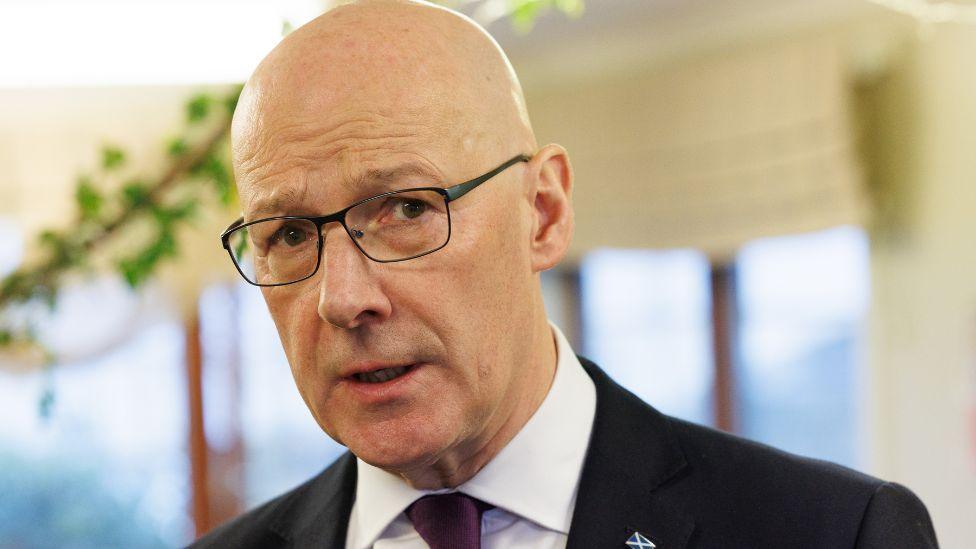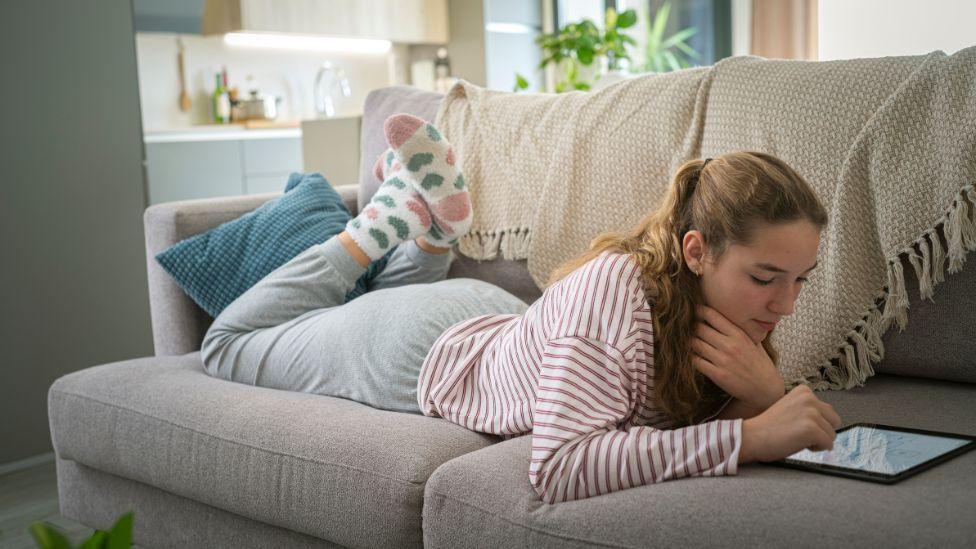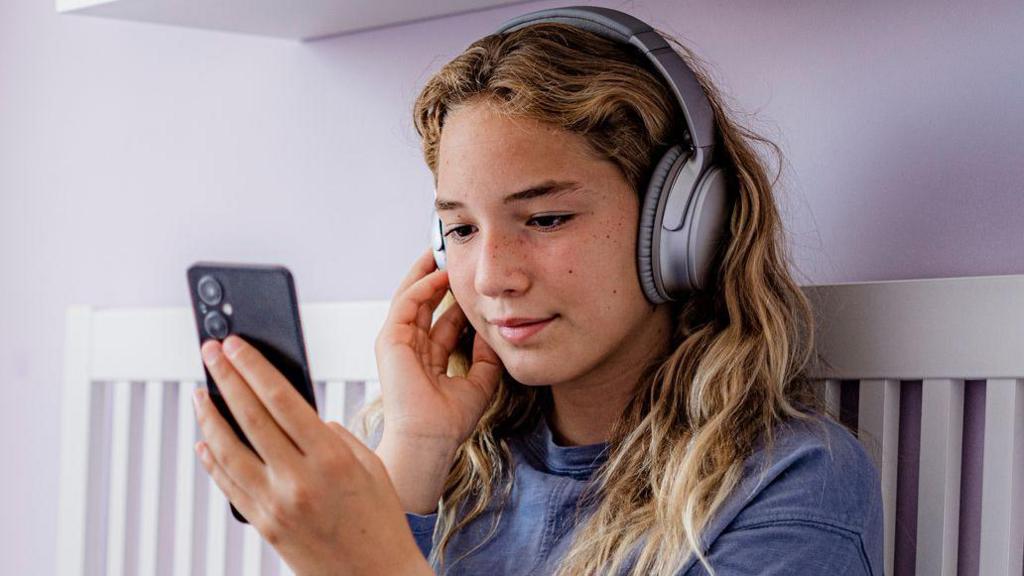Swinney considers calls for child social media ban

John Swinney says there is a "strong argument" for an Australian-style ban
- Published
First Minister John Swinney says he would consider a ban on social media for under-16s.
The UK government, which is in charge of online safety rules north of the border, has said such a move is "on the table" after Australia announced a ban.
Swinney told BBC Scotland News he had discussed the issue with Labour ministers and would "look carefully" at options to protect youngsters.
He said he would aim to "strike the right balance" between protecting people from the "damaging" effects of social media, while also noting it could have a positive impact.
The SNP leader said: "The Scottish government will look at the measures that are necessary to tackle the effects, the negative effects, that came come from social media on young people."
He added: "It's vital that we are alert and aware of the potential threats that can exist, whilst acknowledging that there are many benefits of social media activity."
Swinney told reporters earlier that there was a "strong argument" for an Australian-style ban, and that he would consider such a move.

The UK government says it is considering moves to protect young people from harmful social media content
In the UK, most popular social media services require users to be at least 13 years old before they can register, though some sites are created especially for younger children.
Social media firms are not allowed to collect or store children's personal information if they are under the age of 13. Only children aged 13 and older can sign up to online services without parental permission.
Powers over online content and mobile phones are not devolved to Holyrood and lie with the UK government.
Labour Technology Secretary Peter Kyle said last month a ban was "on the table".
He also announced further research into the impact of smartphones and social media on young people.
Kyle said he would "do what it takes" to keep children safe online.
Australian ban
The debate around social media has intensified after the Australian government said it would ban it for under 16s.
Unlike attempted restrictions elsewhere in the world, it will not include exemptions for existing users or those with parental consent.
Tech firms could be fined up to A$50m (£25.7m) if they do not comply.
The ban will apply to Snapchat, TikTok, Facebook, Instagram and X. Gaming and messaging platforms are exempt, as are sites that can be accessed without an account, meaning YouTube is unlikely to be banned.
Calls for stricter controls have been made for about a decade, but have proved difficult to enact in the face of fierce opposition from tech firms with vast resources.
The European Union previously abandoned a plan to prevent social media firms from processing personal data belonging to under-16s unless their parents had given consent.
Joanna Barrett, associate head of policy at children's charity NSPCC Scotland, said: "The Scottish government is right to consider what more can be done to protect children online but our concern is that blanket bans on social media could drive teenagers to less secure, unregulated spaces which may put them at greater risk.
"Instead, the onus should be on tech companies to implement robust safety features such as age assurance, content moderation and child sexual abuse detection tools rather than blunt bans."

Does the Scottish government have the power to ban under-16s from social media or does the power lie solely with the UK government?
That may be the issue – regardless of the rights and wrongs of any ban.
Online safety is a Westminster matter. But Holyrood could still try to prevent under 16s from using social media or improve online protection – perhaps as a public health measure.
If the UK government ruled out a ban across Britain, the Scottish government might ask for the power to do so within Scotland.
It's possible the Scottish government could even attempt to legislate for a ban – risking a court challenge from the UK government.
But it's too early for all that.
The relationship between the Scottish and UK governments has improved since the election, so it's unlikely either side would want a legal battle over a well-intended measure to help potentially vulnerable young people.
There's also a very simple question with no clear answer - would a ban in Scotland alone prove practical or effective?
- Published20 November 2024

- Published25 September 2024

- Published21 November 2024
